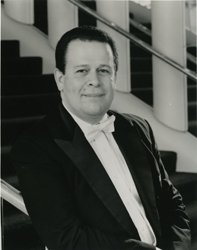Russian program at Berkeley’s Christian Science Hall
The Berkeley Art Center, long a gathering spot for local creativity, hosts concerts and readings along with its varied and sometimes provocative art shows. Marvin Sanders, flutist and director of Live Oak Concerts, runs a series of intimated concerts there. Last Sunday, June 21, he joined in an all-Bach program with harpsichord, violin and cello.
When the Cypress quartet, the Art Center’s previous quartet-in-residence, left for fame and an international career, they were replaced with the Jupiter quartet. Not the Boston quartet featuring the young Freivogel sisters, but a local foursome whose dedication to lesser-known Russian composers fills a gap in Western musical lineage.
In a concert in Berkeley June 26, the Jupiter quartet communicated their excitement in performing these lesser-known 20th century composers with engaging remarks before each piece.
Georgy L’Vovich Catoire (1861-1926) was a fan of Wagner at a time when the Russian musical establishment was firmly anti-Wagner, and this self-effacing composer is still not well known. According to first violinist Victor Romasevich, Catoire’s “shy and nervous personality manifests in the music. The tempo is constantly changing; harmony, while tonal, is always shifting. And he doesn’t like strong downbeats or straightforward meter, giving a blurred and unsettled feeling. But this protégé of Tchaikovsky has the wonderful melodic gift that Tchaikovsky has.”
The program opened with Catoire’s String Quartet in F# Minor, Op. 23, written in 1913. The Jupiter quartet gave it a very warm reading, and in the cozy Durant Ave. chamber of Christian Science Organization Hall the slowly shifting harmonies held us in a dreamy quicksand. In the second movement, Allegro fantastico, the cello answered sweeping violins with sharp counter-rhythms.
Catoire adds a Russian sensibility to the Wagnerian sound: his music, though filled with feeling, contains a reasoned passion. Waves of notes do not beach us in hot climes, but are deeper ocean billows, a wintry surge and release.
After emigrating from Russia, violinist Romasevich studied violin and viola with composer Iosif Arshakovich Andriasov (1933-2000), who had emigrated in 1979 after political differences with Leonid Brezhnev’s government. In 1954, at the age of 21, Andriasov wrote his String Quartet in D Major, Op. 1, in which he explored his musical heritage, the folk melodies of Armenia. After arriving in this country he premiered this work at a minimum-security jail for two groups of inmates. Romasevich explained that he was there for his teacher’s concert, and watched as the prisoners stopped their games of pool, brought out chairs, and listened with tears in their eyes. And their wild applause brought the warden running.
Andriasov’s simple line and subtle treatment have real punch, and the Jupiter Quartet’s treatment was vibrant. Eastern motifs added bite in the Allegro, while the sad Lento movement wove melodies through the hard fourths of Eastern European drone, reminding me of the women’s choral group, Kitka. The third movement, a fast Presto, was modeled on shepherd flutes chasing each other’s lines. This early piece was unusual—Andriasov’s later music followed an atonal, though highly melodic, path.
They closed with Sergei Ivanovich Taneyev (1856-1915), a student of Tchaikovsky whose specialty was counterpoint. According to Jupiter violist Stephen Levintow, Taneyev is accessible and genial, as untroubled as an English garden, but his wit becomes evident as his C Major cello phrases sprout F-Sharp endings.
Cellist Paul Rhodes supported with a deep bowing that filled both ear and mouth, anchoring the quartet and turning Taneyev’s craftsmanship into something heartier.
Romasevich’s extraordinary richness and the foursome’s focused sound make this a quartet to savor.
Members of the quartet: Victor Romasevich, first violin, Paul Rhodes, cello, Michael Jones, second violin, and Stephen Levintow, violist.
—Adam Broner
Originally published in the Piedmont Post
Photo: Victor Romasevich, first violin of the Jupiter quartet and a member of the SF Symphony
